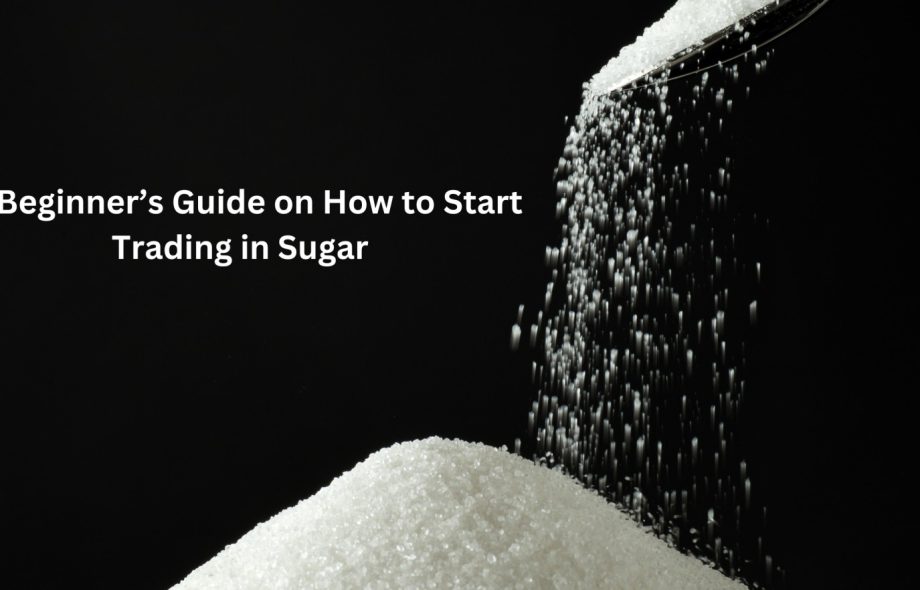Sugar, the sweet ingredient that graces our tables and fuels countless industries, also holds a prominent position in the global commodity market. The sugar commodity price fluctuates based on a complex interplay of supply and demand factors, making it an attractive option for both seasoned traders and curious beginners.
This guide delves into the world of sugar trading, equipping you with the foundational knowledge to navigate this dynamic market. We’ll explore the various ways to trade sugar, the factors influencing its price, and the key strategies to employ for a successful trading journey.
Why Trade Sugar?
The allure of sugar trading lies in its potential for profit. Here are some reasons why sugar might be a fitting addition to your investment portfolio:
- Volatility: Unlike stable investments, sugar prices experience significant swings. This volatility presents opportunities for traders who can accurately predict price movements.
- Global Demand: Sugar is a fundamental commodity consumed worldwide. Rising populations and economic growth in developing nations contribute to a steady increase in demand, potentially pushing prices upwards.
- Hedging: Experienced traders use sugar to hedge against inflation or currency fluctuations. As a dollar-denominated commodity, sugar can offer a shield against a weakening dollar.
- Portfolio Diversification: Including sugar in your investment mix can add a layer of diversification, mitigating risks associated with traditional assets.
Understanding the Sugar Market
Before diving into the trading arena, it’s crucial to gain a comprehensive understanding of the sugar market. Here are some key aspects to consider:
- Sugar Types: While refined white sugar is the most common type used for consumption, raw sugar, a less processed version, is the primary focus of commodity trading.
- Production and Consumption: Major sugar producers include Brazil, India, China, and Thailand. Leading consumers are populous nations like China, India, and the United States. Fluctuations in production levels due to weather patterns, diseases, or government policies significantly impact sugar prices.
Famous Sugar Quote:
“Sugar is made bitter by the knowledge of its effects.” – Alexis Saint-Martin (French physician)
This quote highlights a vital point to consider: Sugar consumption patterns and growing health concerns could influence future demand and impact sugar prices.
Ways to Trade Sugar
There are several avenues to explore when venturing into sugar trading. Each method carries unique advantages and risks, so choosing the right one depends on your risk tolerance and trading goals. Here’s a breakdown of the most common methods:
- Futures Contracts: This involves buying or selling contracts that obligate you to buy or sell a specific amount of sugar at a predetermined price on a future date. Futures contracts allow for leverage, amplifying profits (or losses) based on price movements.
- Options Contracts: Options contracts grant you the right, but not the obligation, to buy or sell sugar at a specific price by a certain date. They offer a way to hedge existing positions or capitalize on anticipated price movements without the full commitment of futures contracts.
- Sugar ETFs: Exchange-Traded Funds (ETFs) that track sugar futures contracts provide an alternative for those seeking exposure to the sugar market without directly managing futures or options.
- CFD Trading: Contracts for Difference (CFDs) allow you to speculate on sugar price movements without physically owning the sugar. This method carries significant risk due to leverage and potential margin calls.
Factors Affecting Sugar Commodity Price
A multitude of factors influence the price of sugar in the global market. Here are some key drivers to keep an eye on:
- Supply and Demand: This is the fundamental factor governing the price of any commodity. Fluctuations in sugar production due to weather events, government policies, or crop diseases can significantly impact its price. On the demand side, population growth, economic development, and changing dietary habits all play a role.
- Currency Fluctuations: As sugar is primarily traded in US dollars, the strength of the dollar can influence its price. A weakening dollar can make sugar more attractive to international buyers, potentially driving the price up.
- Energy Prices: Sugarcane refining requires significant energy input. Fluctuations in oil prices can affect production costs and ultimately influence sugar price.
- Government Policies: Government subsidies, trade agreements, and export restrictions in major sugar-producing countries can have a significant impact on global supply and consequently, the price of sugar.
Strategies for Successful Sugar Trading
Like any venture involving the market, successful sugar trading demands careful planning, discipline, and risk management. Here are some strategies to consider:
- Conduct Thorough Research: Stay informed about global sugar production, upcoming weather patterns, economic indicators, and government policies that may impact sugar prices.
- Develop a Trading Plan: Define your trading goals, risk tolerance, and exit strategies before entering any trades.
- Start Small: Begin with smaller trades to familiarize yourself with the












